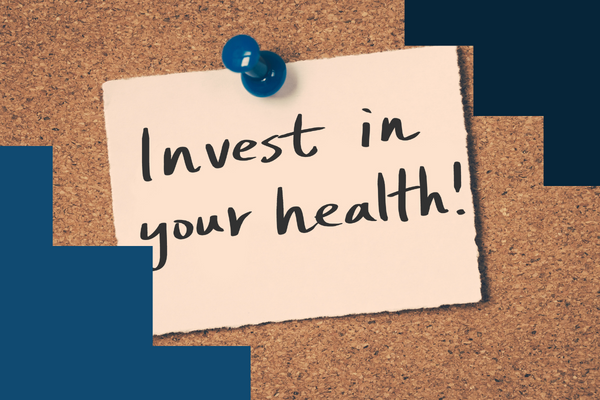Hal Elrod wrote, “The moment you take responsibility for everything in your life, is the moment you can change anything in your life.”

Your Health, Your Responsibility
Personal Responsibility
After 30 years of experience in the health and wellness industry, it’s easy to feel like a broken record… repeating the same things over and over. If I have learned one thing, however, it’s that no matter how great the tools we give you to work on your health, YOU must swing the hammer.
Given this metaphor, we’re going to discuss how personal choice and responsibility can determine the outcomes of your health. Many chronic illnesses could be mitigated—and possibly even outright eliminated—by modifying behavioral risk factors. According to the Center for Disease Control, the top four behaviors labeled “actual causes of disease and death are”:
Tobacco use
Poor diet
Physical inactivity
Alcohol consumption
However, despite the vast wealth of information regarding behavior change, we see more and more people succumb to the pernicious effects of these negative lifestyle choices. We know behavior change is hard! And although only you can truly choose to change (move more, eat healthier, journal, etc.), coaching, a supportive environment, and simple behavioral strategies help!
There are associated costs to change. That cost may be creating a different routine, such as getting up earlier to exercise, cleaning out your pantry of temptations, or grocery shopping only after eating a healthy meal. The “benefits” of change must outweigh the “costs.” The benefit should be important enough to you that when you don’t feel like doing the right thing, your motivation to achieve the result is stronger. We call this your why. This is a simplified process of how to change behavior, but a good starting point. What is your "why"?
According to this study by the Partnership to Fight Chronic Disease, if Americans were to quit smoking, eat healthier, and increase physical activity, we could prevent 80% of heart disease and strokes; 80% of type two diabetes; and 40% of cancer. Look at the visual below to assess a possible “why” for yourself.

This raises the question: should all our programs be focused on diet, exercise, smoking cessation, and alcohol use? Possibly, but at Balanced Wellness we would contend that a total wellness approach is actually the more effective method. Taking a comprehensive approach allows us to address the key, underlying issues and foster sustainable change.
For instance, consider how often we hear our peers share how busy and stressed they are. If we were to add the task of eating well and exercising to the equation, they would believe that these healthy behaviors were actually a chore, not a benefit. It could make them feel more overwhelmed, which could not only increase negative lifestyle habits, but could also derail their goal of living a healthier life!
Personal Choice
At Balanced Wellness, we don’t believe in restriction. In our wellness programs, for example, we target negative habits, like smoking. We address the issue by adding components to our smoking cessation program that focus on not replacing smoking with food, but instead alleviating underlying causes—i.e. poor stress management skills and low physical activity levels, along with establishing strong social support!
As we’ve surely mentioned before, getting people in the habit of thinking critically about their personal health is the first step in achieving and maintaining optimal health. To accomplish this goal, we strive to educate participants on the multifaceted nature of health and wellness—lifestyle, exercise, diet, mentality, etc. Wellness coaching provides valid, accurate, and supportive information. A passionate, experienced coach can assist you with menu planning, implementing stress management techniques, deciding what level of exercise is best for results, and ultimately with developing a realistic action plan to help you become your very best self. The skills needed to see real, lasting results take time to hone and refine, and a qualified coach can provide the consistent guidance needed to do so.
Learn more about our health and wellness coaching here.
While knowledge and skills are important, it is quite likely that attitude and readiness to change are just as important—if not more so! There has been much research done on mindset and how it applies to behavior change. Team up with one of our certified coaches, and we will help you develop self-awareness, a deliberate approach, and simple strategies for success.
Contact Balanced Wellness! By integrating our flexible wellness programs into your community and workplace groups, you can help yourself, your peers, your loved ones, and more achieve optimal well-being.
